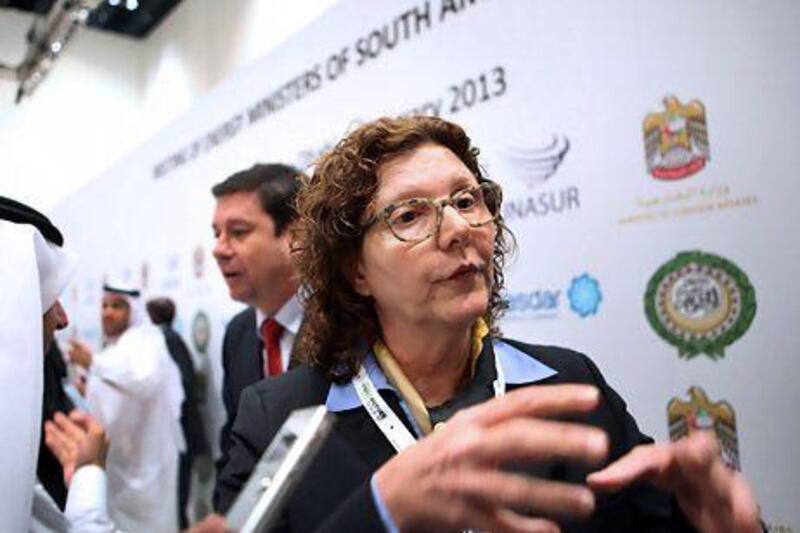Ministers and energy executives from Arab and South American countries vowed to invest more in each others' energy sectors and share technology at a summit in the capital yesterday.
A joint declaration from the Summit of South American-Arab Countries (Aspa) included sharing data on the cost of renewables and promoting investments in fossil fuels, "noting the essential value of robust exploration, production and distribution to all Aspa economies".
Although ministers did not put a dollar figure on investment at their first energy meeting, they listed other areas for work including academic collaboration, sharing lessons in energy efficiency policy and opening power sector bids to partner regions.
Their cooperation on energy has a precedent half a century old. Venezuela, together with Iran, started approaching Arabian Gulf states in 1949 to propose more communication as oil producers. A decade later, Opec, the Organization of the Petroleum Exporting Countries, came to be - although these days Venezuela, saddled with budget needs, is often advocating for much higher prices than the GCC states.
At the meeting on the sidelines of the World Future Energy Summit, leaders described their vision for the flow of cooperation: South American technology to the GCC in exchange for billions of dollars in investments. Mariangela Rebua, the director general of the Brazilian foreign ministry's department of energy, expressed her hope that Arab countries could give a boost to Light for All, an ambitious project that has brought electricity to 2.8 million families.
Peru, the biggest target for UAE investment after Brazil with US$1.3 billion (Dh4.77bn), was optimistic about prospects for expansions in oil and petrochemicals. It hopes to benefit also from the UAE's neighbours as a delegation of 15 businessmen and government officials from Qatar visits Peru today for an investment mission.
"This is a big opportunity for Peru to cooperate with the Arab states," said Tabata Vivanco, the secretary general of the ministry of energy and mines. "Peru has much to do and much to learn. We are waiting for the investments."
On the GCC side, Bahrain is one of many countries seeking technology and experience in bringing renewables on to the power grid. A tender for a 3 megawatt to 5MW solar array is planned for this year. Promising wind measurements have also encouraged plans to launch a pilot turbine project.
"Bahrain was the first country [in the Middle East] to have oil," said Abdul Hussain Ali Mirza, the minister of electricity and water. "But we don't have much of it, so we need to look at the next stage."
The summit came on the heels of a nuclear cooperation agreement between the UAE and Argentina, whose atomic power industry dates to the 1970s. Sheikh Abdullah bin Zayed, the UAE Minister of Foreign Affairs, and his Argentinian counterpart, Hector Timerman, signed the agreement this week in Abu Dhabi, making Argentina the UAE's first nuclear partner from South America.
Separately, Abu Dhabi's renewable energy company Masdar and the International Peace Institute, a think tank based in New York and Vienna, launched a task force to look at the nexus of energy and conflict.
"Energy should be a motor for development and cooperation, not a source of conflict," said Terje Roed-Larsen, the president of the institute, listing Sudan and Iraq among the regional examples of instability stemming from oil. The task force will harness the private sector and examine the Arctic, the Caspian and Central Asia besides the Middle East.





